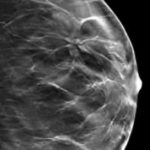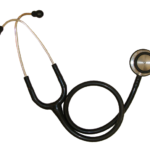 Pap Smear- This procedure is simple and prevents cancer of the cervix. It is recommended to be done every 3 years from age 21 or 3 years after the start of sexual intercourse up till the age of 65-70 years.
Pap Smear- This procedure is simple and prevents cancer of the cervix. It is recommended to be done every 3 years from age 21 or 3 years after the start of sexual intercourse up till the age of 65-70 years.
 Mammography- This is an X-ray of the breast to screen for Breast cancer. It is recommended to be done every 2 years for women 50 years and above. However, because the aggressive forms of breast cancer often occur in the 40s, many physicians recommend starting at age forty. Women with high dense breast tissue do better with breast ultrasounds than mammograms.
Mammography- This is an X-ray of the breast to screen for Breast cancer. It is recommended to be done every 2 years for women 50 years and above. However, because the aggressive forms of breast cancer often occur in the 40s, many physicians recommend starting at age forty. Women with high dense breast tissue do better with breast ultrasounds than mammograms.
 Blood Pressure- This is a range and it varies with age however as a guide if the top number is greater than 140 or the bottom number is greater than 90 when you check your BP, you should see a doctor.
Blood Pressure- This is a range and it varies with age however as a guide if the top number is greater than 140 or the bottom number is greater than 90 when you check your BP, you should see a doctor.
If you are over 65 years or are immunocompromised, you should get a pneumococcal vaccine if you have not had one before, or if it is more than 5 years since you last had the vaccine.
Colon Cancer Screening- Everyone over the age of 50 should be screened. Initial screening is a FIT test where your stool sample is checked for traces of blood. If positive, you would be required to go for a colonoscopy. Under age 50 you may need to do the FIT test every 2-3 years if you had a family member with a history of colon cancer or polyps.
Cholesterol screening- Women over the age of 30 should get their cholesterol level checked every year. If you have diabetes you might want to start screening after age 20. High cholesterol level is a precursor to ‘heart attack’ and sudden death.
 Diabetes Screening: A random blood sugar, HBA1C, fasting blood sugar, 2 hours postprandial blood sugar are all tests to detect if you have Diabetes Mellitus. Diabetes Type 1– This is the early onset diabetes due to insulin secretion deficiency +/- resistance to insulin. Peak onset is between ages 5-7 and 10-14. It runs in families and it may also be triggered is usually triggered by some assault like a viral infection. Diabetes Type 2 – This used to be called adult-onset diabetes but not anymore as many young people are now diagnosed partly because of obesity, physical inactivity, and high alcohol consumption. It also runs in the family and forms 90% of all cases of diabetes.
Diabetes Screening: A random blood sugar, HBA1C, fasting blood sugar, 2 hours postprandial blood sugar are all tests to detect if you have Diabetes Mellitus. Diabetes Type 1– This is the early onset diabetes due to insulin secretion deficiency +/- resistance to insulin. Peak onset is between ages 5-7 and 10-14. It runs in families and it may also be triggered is usually triggered by some assault like a viral infection. Diabetes Type 2 – This used to be called adult-onset diabetes but not anymore as many young people are now diagnosed partly because of obesity, physical inactivity, and high alcohol consumption. It also runs in the family and forms 90% of all cases of diabetes.
 Osteoporosis Screening- This is done after age 65. Osteoporosis is an age-related loss of bone density and the reason for easy fractures in the elderly. People with signs of osteoporosis can be placed on preventative therapy.
Osteoporosis Screening- This is done after age 65. Osteoporosis is an age-related loss of bone density and the reason for easy fractures in the elderly. People with signs of osteoporosis can be placed on preventative therapy.